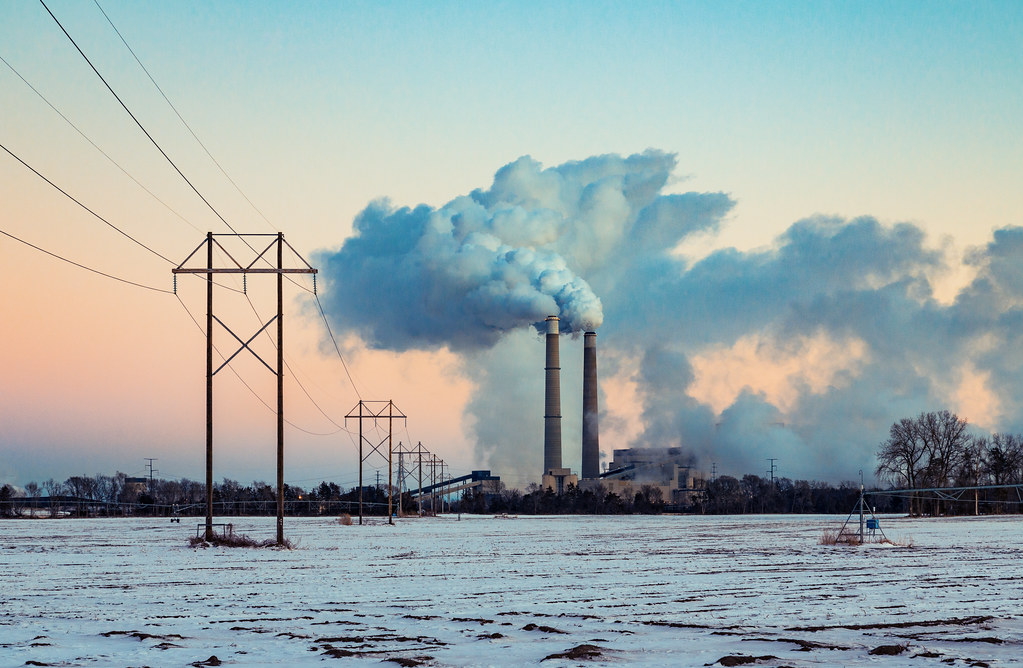22日,75間大企業的高管會見兩黨聯邦議員,要求美國國會通過包含碳價在內的重大氣候法案。這是十多年來國會山莊最盛大的氣候立法倡議商業聚會。
這些企業有英國石油公司(BP)、美國拍賣網站eBay、美國服飾零售商蓋璞公司(Gap)、美國百年牛仔褲品牌Levi Strauss、耐吉(Nike)、瑪氏食品(Mars Inc.)、微軟(Microsoft)、百事可樂(PepsiCo)、殼牌(Shell)、賽門鐵克(Symantic)和特斯拉(Tesla)等。

參加這天「立法者教育宣傳日」(LEAD)活動的企業來自全美50州,其中21間為財富500強,包括貿易協會和中小企業,總營收超過2.5兆美元,雇用超過100萬位美籍員工。
企業代表與參眾兩院議員和國會工作人員進行一對一的會面,說明氣候變遷的經濟影響以及全面有效的國家氣候政策之必要。
越來越多的兩黨議員提出自己的碳價建議書。過去三年間,民主黨和共和黨合作在參議院和眾議院中引入了幾項不同的碳定價法案,包括「市場選擇法案」和「能源創新和碳分紅法案」,但這些法案後來沒有通過。
參與此次碳價會議的企業來自各種產業,涵蓋零售大亨、製造商、石油巨頭、醫療保健服務、食品和飲料公司、戶外產業、科技公司和能源供應商。
「投資者越來越重視氣候變遷的風險及其對公司和投資組合的影響,」瓦登資產管理公司環境社會和治理(ESG)暨股東參與主管史密斯(Tim Smith)說,「企業和投資者的合作在實踐氣候解決方案上發揮著核心作用。碳價將推動乾淨能源投資、發展就業市場和加強美國經濟所需的市場信號,是美國因應氣候變遷的重要工具。」
雪地運動產業想當然爾熱切參與這次會議。
阿斯彭滑雪公司永續發展總監漢密爾頓(Matthew Hamilton)說:「氣候變遷對我們在科羅拉多州和全國各地的戶外娛樂業構成直接威脅。因此阿斯彭滑雪公司致力於實現2020年碳排放量減少25%的目標。精心設計的碳價是美國減少溫室氣體排放、因應氣候變遷,同時保護經濟和確保我們這個產業能持續存在的關鍵工具。」
法國滑雪用品製造商Rossignol執行長高樂(Francois Goulet)也表示:「滑雪產業是氣候變遷衝擊第一線,已經開始感受到季節難以預測的問題。這個產業貢獻美國經濟720億美元,Rossignol身為產業領導品牌,承諾要動用影響力解決氣候變遷問題。」

除了Rossignol和荷蘭聯合利華等歐洲企業外,加拿大公司也加入,像自然之路有機食品 。
自然之路執行長斯蒂文斯(Arran Stephens)說:「我們看到了氣候變遷對商業的影響。北達科他州的乾旱影響我們的燕麥供應,加州的惡劣天氣影響我們採購美國有機葡萄乾、稻米和杏仁的能力。現在企業和政府必須共同努力推行政策,為地球帶來積極的改變,我相信全國性碳價是正確的開始。」
Representatives of some of the largest U.S.-based corporations are asking Congress to pass meaningful climate legislation, including a price on carbon.
Today, executives from more than 75 businesses, including: BP, eBay, Capital One, Exelon, Gap, Levi Strauss, Nike, Mars Inc., Microsoft, PepsiCo, Shell, Symantic and Tesla, met with a bipartisan group of federal lawmakers in the largest business gathering on Capitol Hill to advocate for climate legislation in over a decade.

Gathering under the name of Lawmaker Education & Advocacy Day, or LEAD, the participating businesses include 21 Fortune 500 companies as well as trade associations, medium and small businesses from all 50 states, collectively representing combined annual revenues of more than $2.5 trillion and more than one million U.S. employees.
The businesses calling for a meaningful national carbon price span across the American economy, including retail giants, manufacturers, oil majors, healthcare services, food and beverage companies, outdoors industries, technology companies and energy providers. A full list of business participants is online here.
Representatives from these businesses are meeting one-on-one with lawmakers and congressional staff from both sides of the aisle in the House and the Senate to educate them on the economic impacts of climate change and the need for comprehensive and effective national climate policies.
A growing number of bipartisan lawmakers are offering their own carbon pricing proposals. In the last three years, Democrats and Republicans collaborated to introduce several different carbon pricing bills in both the Senate and the House, including the Market Choice Act and the Energy Innovation and Carbon Dividend Act, but these bills were not passed into law.
“Investors are increasingly aware of the dangers of climate change and its impact on companies and our portfolios,” said Tim Smith, director of environmental, social and governance, or ESG, shareowner engagement at Walden Asset Management. “Companies and investors working together have a central role in implementing climate solutions. A price on carbon would create the market signals needed to drive clean energy investments, grow the job market and strengthen the American economy. It is a critical tool in U.S. efforts to address climate change.”
Naturally, companies involved in the snow sports industry are well represented.
Matthew Hamilton, sustainability director at Aspen Skiing Company, said, “Climate change poses a direct threat to the outdoor recreation industry, both in our home state of Colorado and across the country. That is why Aspen Skiing Company is committed to delivering on our goal of reducing our carbon emissions 25 percent by 2020. A well-designed price on carbon is another critical tool in U.S. efforts to reduce greenhouse gas emissions and tackle climate change while protecting the economy and the longevity of our industry.”
Francois Goulet, CEO of the French ski manufacturer Rossignol, said, “The ski industry is on the front lines of climate change, and our business is starting to feel the impacts of increasingly unpredictable seasons. As an industry that contributes $72 billion to the U.S. economy, and as a leading brand within this industry, Rossignol is committed to leveraging our influence to address climate change head-on.”
Not only are some Europe-based companies signing on, such as Rossignol and the Dutch company Unilever, but a distinct contrast between Canadian and U.S. carbon pricing attitudes is clearly illustrated by Arran Stephens, co-founder and co-CEO of Nature’s Path Organic Foods.
“At Nature’s Path, we see the impact of climate change to business,” Stephens said. “From droughts in North Dakota impacting our oats supply to severe weather in California impacting our ability to source organic raisins, rice and almonds domestically. It’s time for business and government to work together to implement policies to bring positive change to our planet, and I believe it begins with a national price on carbon.”
※ 全文及圖片詳見:ENS









